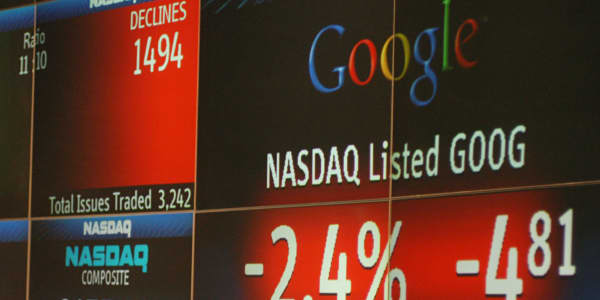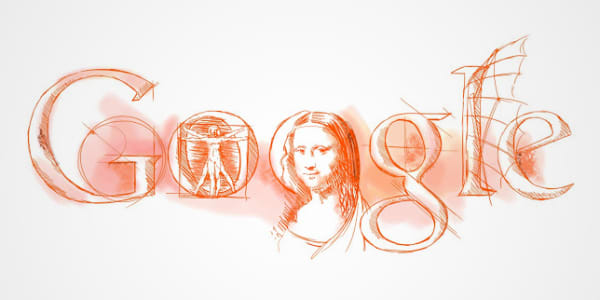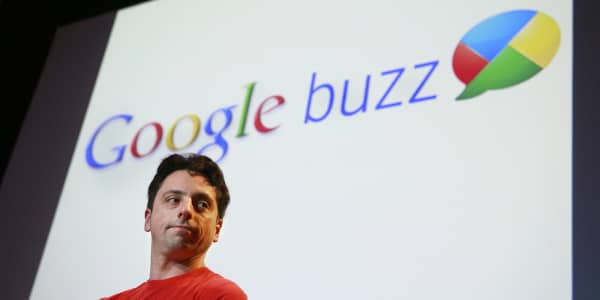A decade ago Tuesday, as top Google executives ceremoniously huddled at the Nasdaq Stock Market in New York for the search engine's much-hyped trading debut, Lise Buyer, a company director, sat with co-founder Sergey Brin in the Silicon Valley office of lead banker Morgan Stanley. There was coffee and fruit, but little appetite for it in the room. From a TV screen, a half-dozen employees and bankers watched the stock, which had been priced at $85 in the initial public offering, immediately jump to $100: Success!
"It was a moment of exhilaration and exhaustion," Buyer, who was Google's director of business optimization until 2006 and one of the architects of the IPO, said recently as she reflected on the iconic deal. "We'd been working on the tiny details around the clock."
Much of that detail had to do with Google's unorthodox IPO. Rather than a typical offering, with lead investment bankers shopping the deal to big money managers, finding an agreeable price, and then discounting it so that new investors get a healthy bounce right away, Google chose to go with an auction.
Often called a "Dutch" auction, this type of sale allows any investor—institution or individual—to put in a bid over the Web for a certain number of shares at a certain price without knowing what others are offering to pay. After the bidding, the highest price at which every available share can be sold becomes the price for all the shares—the IPO price. Google, along with early backers, was selling almost 20 million shares, and bids could be submitted for as few as five.
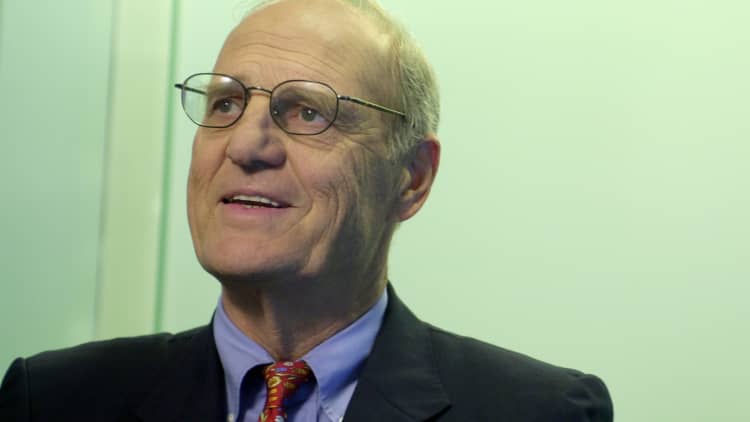
Read MoreGoogle 9 years after IPO: Buy, sell or hold?
The rationale was simple: Take the short-term gains away from Wall Street and big money and give at least some ownership to the many consumers whose obsessive use of the search engine had allowed it to grow from a garage start-up into a multibillion-dollar phenomenon in half a decade.
And there was another reason. Google's highly profitable business model was based on algorithmically auctioning advertising space alongside search results. So why not choose a different kind of auction to create a shareholder base? In their letter to prospective investors, the same one that famously declared Google's principal of "don't be evil," the co-founders wrote that "our experience with auction-based advertising systems has been helpful in the auction design process for the IPO."
By most accounts, the share sale was victorious. Google overcame a weak market for IPOs, an unproven offering model and an ill-timed interview with Playboy magazine to generate a solid first-day return and a market capitalization of over $27 billion. From there, the stock kept appreciating.
But instead of pioneering a new formula for IPOs, with investment banks and big investment shops ceding control to the issuing companies and a wider universe of investors, the Google deal remains a historical anomaly. Save for a handful of auction-based offerings from companies including NetSuite and Rackspace, the market looks much like it did before Google's IPO.
Buyer, the former Google executive, runs an advisory service called Class V Group for tech start-ups that are headed for the public markets. She notes that of the companies with big consumer brands like Facebook, LinkedIn and Twitter that could have gotten away with an auction, all chose to go the standard route in recent IPOs.
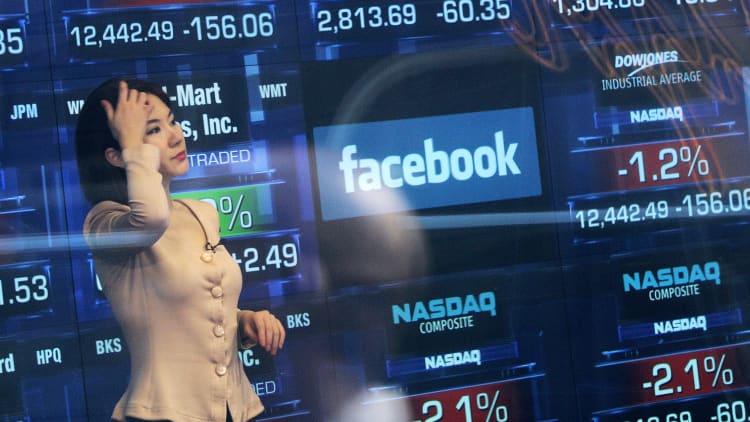
Experts offer up two main explanations. The first is that auctions are risky. Banks get paid handsomely (7 percent of the offering amount is typical) to sell a deal to their clients, and in the process make sure prospective investors understand the business, competitive landscape and the state of the market. Through that work, they find what investors are willing to pay, so companies can be fairly confident that there's adequate demand at the set price. An auction, meanwhile, is more like an investors' Wild West.
The second reason is that Google's offering wasn't a real auction, but more of a hybrid. After all, there was clearly enough investor demand to price the stock at closer to $100, because that's where the stock opened, but at the last minute lead underwriters Morgan Stanley and dropped it to $85. The low end of the expected range had been $108.
David Golden, a banker at JPMorgan, one of the many banks that served as an underwriter for the IPO, said the big investors decided just before the offering that without a reduction in price, they'd wait until the stock started trading and buy it on the open market rather than pay $100 a share or more in the IPO.
"Lo and behold, it was set at $85 a share, which built in a 15 to 18 percent profit that banks like to deliver to big institutional investors and that investors like to receive," said Golden, who is now a managing partner at Revolution Ventures in San Francisco. Institutions "want to know that when they're buying risky, illiquid securities, they're going to have a built-in gain."
Nobody knows that game better than Bill Hambrecht. The legendary Silicon Valley investment banker co-founded Hambrecht & Quist in 1968 and helped underwrite the IPOs of Apple, Amazon.com and Genentech, among other now household names. H&Q was acquired by Chase Manhattan during the dot-com bubble, and Hambrecht started WR Hambrecht + Co., developing a model called OpenIPO for companies that wanted to do auctions. He used the platform to lead the IPOs of Ravenswood Winery in 1999 and Peet's Coffee & Tea in 2001.
Hambrecht's service is not designed for the first-day pop, certainly not the kind the tech market gets excited about, like LinkedIn (up 109 percent) or Twitter (up 73 percent). Hambrecht has conducted 25 offerings on his OpenIPO system, and the average first-day gain for the stock is 3.1 percent. In 2013, the average U.S. IPO shot up 21 percent in its debut, up from 16 percent in 2012, according to a report from law firm WilmerHale.
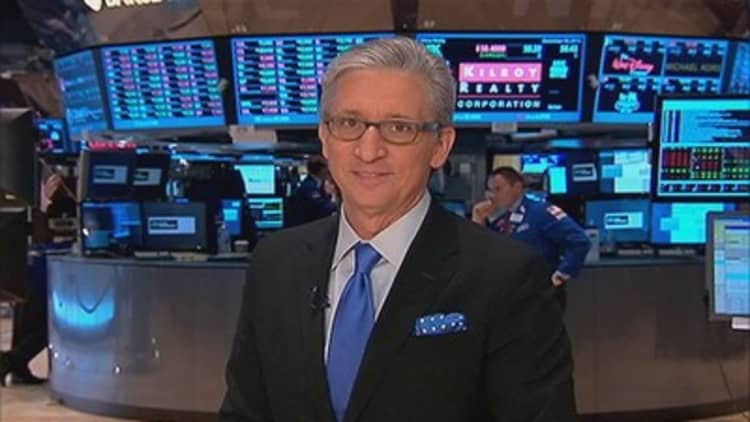
Hambrecht's auction expertise, along with his bottomless Rolodex, got him into the Google IPO. But unlike previous auctions that Hambrecht led, Google brought him in as a co-manager, behind the Wall Street powerhouses Morgan Stanley and Credit Suisse. As much as Hambrecht views an auction as a way to find a more honest IPO price, and as much as wanted to help Google in its pursuits, he found himself battling with the big banks, which wanted to ensure that their clients made money. After having similar experiences on a smaller scale with NetSuite in 2007 and Rackspace a year later, Hambrecht says his firm stopped trying to compete for business against the so-called bulge bracket firms—Morgan Stanley, Goldman Sachs, etc.
"It's a constant wrestling match for them to drag the auction back to their system," Hambrecht said in an interview at his San Francisco office. "The relationship we had with the bookrunners was so adversarial; I said `Hell, I just don't want to do this again.'"
Ann Sherman, an associate professor of finance at DePaul University in Chicago, has spent much of her career studying IPOs, and that's left her a skeptic about auctions. In an underwriter-led IPO, bankers spend hours and hours gathering information that helps guide an offering, from data on comparable companies and investor appetite to market conditions. All of that feeds into the price discovery process. There's a similar reason that homeowners pay hefty fees for real estate agents rather than trying to sell a house themselves—it's too important an event to leave to chance.
According to Sherman, auctions can work for things like pricey paintings and Beanie Babies on eBay, because in those cases, people are buying something they want, either as a toy or to hang on their wall and admire. Stocks don't work that way.
"People aren't buying Google stock to take it home and hug it and be happy," said Sherman, who advised Google in its IPO.
Buyer, who has been helping companies in the IPO process for seven years at Class V Group, said the topic of an auction almost never comes up. For the few executives who have discussed it, the idea has been dismissed pretty quickly by board members and advisers, she said. At Google, she was working with a team that openly shunned Wall Street and had the brand recognition and consumer appeal to go against convention. Even then, it wasn't a pure auction.
"I would encourage the widely known, rapidly growing, strong business model, consumer-oriented businesses to consider it," she said. "For 99 percent of companies, the traditional approach is the right answer."
But there may soon be auction opportunities for the less well-known brands. In recent years, the IPO market has all but disappeared for tech companies that can't raise at least $100 million and achieve a public market valuation in the $1 billion neighborhood. Scores of venture-backed companies are smaller than that, and have investors who would love to sell at least part of their stake.
Hambrecht said he is in the process of working with a few companies on auction-based offerings in the $30 million to $50 million range that should result in market valuations of $100 million to $200 million. While he can't name them, he said some are on file confidentially under the 2012 Jumpstart Our Business Startups (JOBS) Act, which lets companies with less than $1 billion in annual revenue keep their finances under wraps until shortly before the roadshow to market the deal.
Read MoreWhat does the JOBS Act do?
They're intrigued by an auction, because it reduces their fees to bankers and lawyers and leaves less cash on the table to be gobbled up by money managers, Hambrecht said. He's targeting investors who have typically not had access to IPOs, can put fewer dollars to work and don't expect to get a big pop in the stock right away.
"There are a whole lot of companies that have come through both bubbles, really good companies that have been in VC portfolios for 10 to 15 years," Hambrecht said. "They don't need much money; they need liquidity for investors. We're out there saying we're trying to work out a process to allow you to get public in an efficient and cost-effective way."
That's very different than the Google story.
—By CNBC's Ari Levy.



